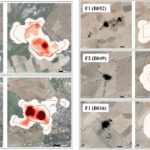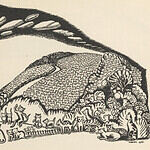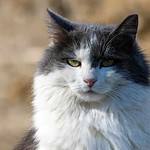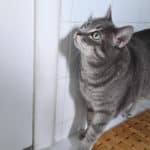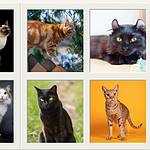We all know that after taking a bite of food or after a delicious meal, we tend to lick our lips to ensure that we get every last drop and that there is no leftover food on our lips. Cats are similar to us in this and definitely appreciate a good meal!
But what does it mean when our cats lick their lips excessively? There’s no way their meal was that good! Besides cleaning their mouths and lips, cats may sometimes lick their lips because of dental issues, oral wounds, anxiety, nausea, upper respiratory illnesses, allergies, stress, OCD, xerostomia, ptyalism, having consumed something yucky or toxic, or even focal seizures.
Listed here are some reasons why your cat licks their lips.
Your cat is anticipating food
Some cats will lick their lips while waiting for food. Researchers that evaluated the behavior of Maine Coon cats found lip licking to be one of the primary behaviors as the cats anticipated being fed.
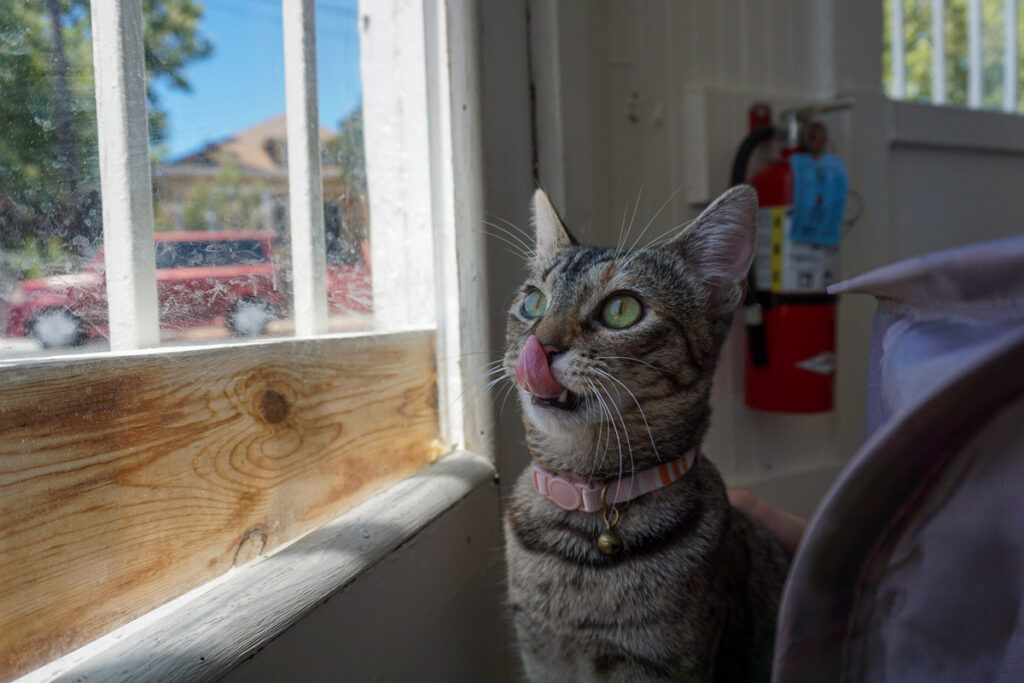
Post meal grooming
The main reason cats might lick their lips is to clean themselves up after they have eaten a meal. Cats have a natural instinct to clean themselves after eating to rid themselves of the scent of their meal.
Some cats could even be considered “clean freaks” and will spend a significantly longer amount of time licking their lips and grooming their face and paws after a meal. Others may just do it a little bit after eating or drinking.
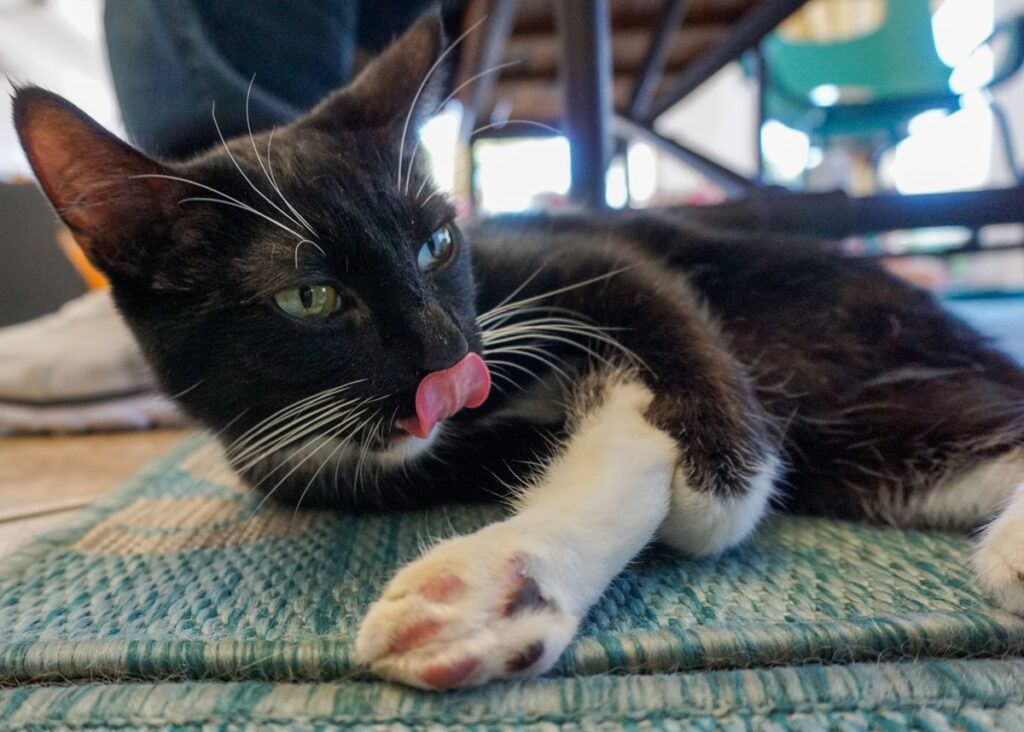
Cats can lick when they are stressed or anxious
Anxious cats may sometimes display displacement behaviors which is a way that cats soothe themselves and relieve stress momentarily. This can look like excessive licking of the lips or excessive grooming. The anxiety and stress that a cat may be experiencing might make them exhibit this type of behavior. For example, car rides and vet visits can be incredibly nerve-wracking for cats!
Similarly, stress or recent changes in the cat’s life could cause the cat to develop behaviors like excessive grooming or lip licking to try to cope. Examples of changes might include moving to a new home, introducing a new household member, whether it be a new partner or bringing a baby home, or another pet like a cat or a dog. Even just changing a cat’s food or litter could cause them some stress and frustration.
Obsessive-Compulsive Disorder
Some cats can develop ritual-like habits that become excessive. This is usually classified as obsessive-compulsive disorder (OCD). In addition to excessively licking their lips, cats with OCD might also display behaviors like obsessively licking or grooming themselves, chasing their tails, or sucking on fabrics.
Excessive licking and grooming are the behaviors most often seen in cats with OCD.
The good news is that there are ways to manage cat OCD and make the behaviors less harmful. There are natural remedies along with prescription medications that your veterinarian can prescribe.
A foreign object is stuck in the cat’s mouth
There is also always a possibility that a cat might get something stuck in its mouth or on its lips. This could be something like a foxtail, a tiny cluster of spiked pieces of grass that got embedded in the cat’s cheeks on its lips.
A sliver is also another possibility that could cause irritation and cause a cat to lick its lips excessively due to pain or irritation.
Oral pain or disease
Excessive lip licking by a cat could be a sign of oral disease or pain with their teeth or gums. You might also notice that your cat is pawing at their mouth, drooling, has a foul odor coming from its mouth, is not eating well, or has a poor appetite.
Dental disease is usually the result of plaque build-up on the teeth, which eventually turns into tartar that develops above and below the gum line, which can make the environment ripe for bacteria.
Common dental diseases that cats suffer from are gingivitis, periodontitis, tooth resorption, or oral tumors. Gingivitis is the result of bacterial build-up in the mouth and, usually without treatment, will advance to periodontitis. Periodontitis occurs when the bacteria penetrate even further into the gums and can ultimately cause infection and painful abscesses.
Tooth resorption is a somewhat mysterious condition that some cats suffer from. This tooth resorption is when one tooth starts decaying from the inside of the tooth to the outside. It is usually incredibly uncomfortable for cats.
Oral wounds like an injury or ulcer usually develop from infections or because the cat ingested a caustic substance. Wounds like these can be inside or around the cat’s mouth and can be really painful for the cat. The cat might paw at its face, try to rub its face on the carpet, or lick its lips, all in an attempt to curb the pain. Similarly, oral tumors, as they sound, are tumors that form on the inside of a cat’s mouth. They can be painful for cats, so the cat will lick its lips in an attempt to do something to alleviate the pain.
Nausea
Cats might also lick their lips excessively because they feel nauseous. This could look like a cat licking its lips, followed by the cat making a swallowing motion.
Watch for signs of drooling, chewing motions, dry heaving, and dehydration. These symptoms could escalate to vomiting.
Persistent nausea can indicate an underlying health concern like kidney failure, diabetes, and cancer, so it will be important to have your cat evaluated by their veterinarian if you notice any of these symptoms.
Consuming something foul-tasting or toxic
Another reason cats may excessively lick their lips is because they got into something either foul-tasting or toxic. Cats tend to get into things they shouldn’t, whether it be stealing a lick of hot sauce off our plates or eating a houseplant that may actually be toxic to cats.
In the more serious event that your cat ate something toxic, watch your cat closely for further symptoms like excessive salivation, vomiting, trouble breathing, lack of appetite, or not drinking. If your cat displays multiple symptoms, you’ll want to get to the vet right away.
Ptyalism
Ptyalism is a term used to describe excessive salivation. It can result in cats frequently licking their lips. Ptyalism is often an indicator of possible underlying concerns like periodontal disease, injury to the mouth, nausea, kidney disease, or having eaten something toxic.
Xerostomia
Xerostomia is another term for dry mouth. Cats that suffer from dry mouth can have underlying medical concerns like dehydration, kidney or liver problems, and endocrine problems. The first step would be to increase the cat’s water intake. If the cat is still excessively licking its lips after that, it may be time to visit with a vet to look for other concerns that may be causing the dry mouth.
Focal seizures
Focal seizures, sometimes called partial seizures, are occasionally seen in cats. They can display symptoms or behaviors like excessive lip licking, chomping their mouth and teeth, and even biting at the air. If you notice any symptoms like these, be sure to take your cat to the vet for a diagnostic work-up.
Allergies
Allergies can even be a cause of excessive licking, too. Cats could be allergic to something in your home, a food allergy, or it could be seasonal allergies like us humans get! Hay fever, pollen, dust mites, and even other animal dander can irritate some cats and cause them to lick excessively.
Conclusion
There are numerous reasons cats might lick their lips, varying from dental issues to just a cat enjoying their meal! If you notice excessive licking from your cat that doesn’t seem to occur only after eating a meal, continue to monitor your cat closely for any other symptoms and to see how long the lip-licking continues.
If your cat is presenting any worrisome symptoms that do not seem to be going away, it may be best to consult with your vet to help determine the best plan of action for your cat.
References
Cannas, S., Mattiello, S., Battini, M., Ingraffia, S. I., Cadoni, D., & Palestrini, C. (2020). Evaluation of Maine Coon cat behavior during three different management situations. Journal of Veterinary Behavior, 37, 93-100. https://doi.org/10.1016/j.jveb.2019.12.004
Elliot, J. (2019). Treatment of vomiting, nausea and inappetence in cats with chronic kidney disease. International Renal Interest Society. http://iris-kidney.com/education/treatment_of_vomiting.html
Moody, C. M., Mason, G. J., Dewey, C. E., & Niel, L. (2020). Getting a grip: cats respond negatively to scruffing and clips. Veterinary Record, 186(12), 385-385. https://doi.org/10.1136/vr.105261

